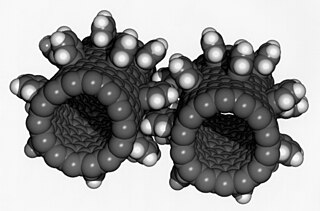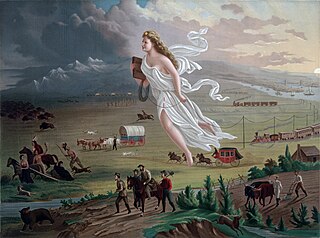
Chemical engineering is an engineering field which deals with the study of operation and design of chemical plants as well as methods of improving production. Chemical engineers develop economical commercial processes to convert raw materials into useful products. Chemical engineering uses principles of chemistry, physics, mathematics, biology, and economics to efficiently use, produce, design, transport and transform energy and materials. The work of chemical engineers can range from the utilization of nanotechnology and nanomaterials in the laboratory to large-scale industrial processes that convert chemicals, raw materials, living cells, microorganisms, and energy into useful forms and products. Chemical engineers are involved in many aspects of plant design and operation, including safety and hazard assessments, process design and analysis, modeling, control engineering, chemical reaction engineering, nuclear engineering, biological engineering, construction specification, and operating instructions.

Nanotechnology, also shortened to nanotech, is the use of matter on an atomic, molecular, and supramolecular scale for industrial purposes. The earliest, widespread description of nanotechnology referred to the particular technological goal of precisely manipulating atoms and molecules for fabrication of macroscale products, also now referred to as molecular nanotechnology. A more generalized description of nanotechnology was subsequently established by the National Nanotechnology Initiative, which defined nanotechnology as the manipulation of matter with at least one dimension sized from 1 to 100 nanometers (nm). This definition reflects the fact that quantum mechanical effects are important at this quantum-realm scale, and so the definition shifted from a particular technological goal to a research category inclusive of all types of research and technologies that deal with the special properties of matter which occur below the given size threshold. It is therefore common to see the plural form "nanotechnologies" as well as "nanoscale technologies" to refer to the broad range of research and applications whose common trait is size.
Philology is the study of language in oral and written historical sources; it is the intersection of textual criticism, literary criticism, history, and linguistics. Philology is also defined as the study of literary texts as well as oral and written records, the establishment of their authenticity and their original form, and the determination of their meaning. A person who pursues this kind of study is known as a philologist.

A Century of Progress International Exposition, also known as the Chicago World's Fair, was a world's fair held in the city of Chicago, Illinois, United States, from 1933 to 1934. The fair, registered under the Bureau International des Expositions (BIE), celebrated the city's centennial. The theme of the fair was technological innovation, and its motto was "Science Finds, Industry Applies, Man Adapts", trumpeting the message that science and American life were wedded. Its architectural symbol was the Sky Ride, a transporter bridge perpendicular to the shore on which one could ride from one side of the fair to the other.
Industrial ecology (IE) is the study of material and energy flows through industrial systems. The global industrial economy can be modelled as a network of industrial processes that extract resources from the Earth and transform those resources into products and services which can be bought and sold to meet the needs of humanity. Industrial ecology seeks to quantify the material flows and document the industrial processes that make modern society function. Industrial ecologists are often concerned with the impacts that industrial activities have on the environment, with use of the planet's supply of natural resources, and with problems of waste disposal. Industrial ecology is a young but growing multidisciplinary field of research which combines aspects of engineering, economics, sociology, toxicology and the natural sciences.

A Master of Science is a master's degree in the field of science awarded by universities in many countries or a person holding such a degree. In contrast to the Master of Arts degree, the Master of Science degree is typically granted for studies in sciences, engineering and medicine and is usually for programs that are more focused on scientific and mathematical subjects; however, different universities have different conventions and may also offer the degree for fields typically considered within the humanities and social sciences. While it ultimately depends upon the specific program, earning a Master of Science degree typically includes writing a thesis.

A gully is a landform created by running water, mass movement, or commonly a combination of both eroding sharply into soil or other relatively erodible material, typically on a hillside or in river floodplains or terraces. Gullies resemble large ditches or small valleys, but are metres to tens of metres in depth and width and are characterised by a distinct 'headscarp' or 'headwall' and progress by headward erosion. Gullies are commonly related to intermittent or ephemeral water flow usually associated with localised intense or protracted rainfall events, or snowmelt. Gullies can be formed and accelerated by cultivation practices on hillslopes in farmland, and they can develop rapidly in rangelands from existing natural erosion forms subject to vegetative cover removal and livestock activity.
A Bachelor of Engineering or a Bachelor of Science in Engineering is an academic undergraduate degree awarded to a student after three to five years of studying engineering at an accredited college or university.

Iran University of Science and Technology (IUST) is a research institution and university of engineering and science in Iran. The university is home to 15 faculties offering undergraduate and postgraduate degrees in a wide range of engineering-based subjects as well as maths, physics, and department of foreign languages. In 1995 IUST awarded Iran’s first PhDs in materials, metallurgical and traffic engineering. IUST is the only university in the Middle East which has a school of railway engineering and a school of progress engineering. It is also the only university in Iran which has a school of automotive engineering. There are also 12 research centres, nine centres of excellence and 19 specialised libraries as well as four satellite campuses in other parts of the country. IUST is located on Hengam Street in the Narmak neighborhood in northeast Tehran. IUST and its surrounding communities provide a cultural and recreational environment suited to the work of a major research institution.

Progress is the movement towards a refined, improved, or otherwise desired state. In the context of progressivism, it refers to the proposition that advancements in technology, science, and social organization have resulted, and by extension will continue to result, in an improved human condition; the latter may happen as a result of direct human action, as in social enterprise or through activism, or as a natural part of sociocultural evolution.

Natural fibers or natural fibres are fibers that are produced by geological processes, or from the bodies of plants or animals. They can be used as a component of composite materials, where the orientation of fibers impacts the properties. Natural fibers can also be matted into sheets to make paper or felt.

Packaging engineering, also package engineering, packaging technology and packaging science, is a broad topic ranging from design conceptualization to product placement. All steps along the manufacturing process, and more, must be taken into account in the design of the package for any given product. Package engineering is an interdisciplinary field integrating science, engineering, technology and management to protect and identify products for distribution, storage, sale, and use. It encompasses the process of design, evaluation, and production of packages. It is a system integral to the value chain that impacts product quality, user satisfaction, distribution efficiencies, and safety. Package engineering includes industry-specific aspects of industrial engineering, marketing, materials science, industrial design and logistics. Packaging engineers must interact with research and development, manufacturing, marketing, graphic design, regulatory, purchasing, planning and so on. The package must sell and protect the product, while maintaining an efficient, cost-effective process cycle.

The Department of Materials Science and Metallurgy (DMSM) is a large research and teaching division of the University of Cambridge. Since 2013 it has been located in West Cambridge, having previously occupied several buildings on the New Museums Site in the centre of Cambridge.
IOP Publishing is the publishing company of the Institute of Physics. It provides publications through which scientific research is distributed worldwide, including journals, community websites, magazines, conference proceedings and books. The Institute of Physics is a scientific charity devoted to increasing the practice, understanding and application of physics. Any financial surplus earned by IOP Publishing goes to support physics through the activities of the Institute.
The right to science and culture is one of the economic, social and cultural rights claimed in the Universal Declaration of Human Rights and related documents of international human rights law. It recognizes that everyone has a right to freely participate in culture, to freely share in science and technology, and to protection of authorship.

Anti-Dühring is a book by Friedrich Engels, first published in German in 1878. It had previously been serialised in the newspaper Vorwärts. There were two further German editions in Engels' lifetime. Anti-Dühring was first published in English translation in 1907.
Pennock v. Dialogue, 27 U.S. 1 (1829), was a United States Supreme Court decision in which the Court held invalid a patent on a method of making hose, because the inventor had commercially exploited the invention for years before filing the patent application. The case has been cited many times for the proposition that the U.S. patent system was not established for the purpose of enriching inventors or their financiers but rather for the purpose of furthering the public interest by stimulating technological progress.











